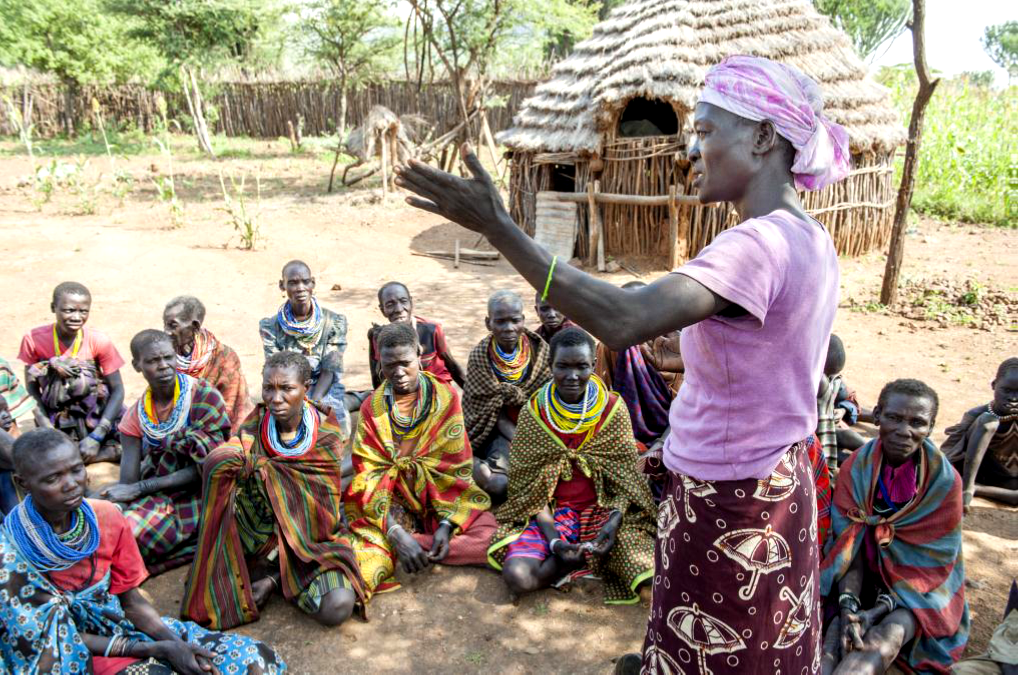Ubuntu

Credit: USAID in Africa
Licence: USAID in Africa, Public domain, via Wikimedia Commons
31/12/2012
| Giver: | Community |
|---|---|
| Receiver: | Individual or unstructured/informal group |
| Gift: | Other |
| Approach: | Other |
| Issues: | 10. Reduced Inequalities |
| Included in: | Mutual Aid |
Ubuntu is a philosophical concept distinctive to Eastern, Central and Southern Africa. Derived from the Nguni Bantu word for “humanity,” the ubuntu ethos is rooted in the belief that individuals are defined by their relationship to society as a whole. In Southern Africa, this idea_ is embodied in the expression _umuntu ngumuntu ngabantu, which translates roughly as “a person is a person through other people,” or “I am because you are.” By emphasizing such values as unity, interdependence and harmony, _ubuntu _encourages consideration of the wellbeing of one's family, neighbor, community as linked to one's own wellbeing. This concept of collective identity is deeply ingrained in the beliefs and customs of many African cultures.
In contrast to western ideals of self-reliance and autonomy, ubuntu is based on the belief that the collective plays a central role in defining personal identity. In many African communities, an individual’s relationships with other people determine their sense of who they are – indeed, their place within society shapes their idea of what it means to be human. At the same time, ubuntu fosters respect for the individuality of other people, which in turn generates feelings of compassion, empathy and trust.
These relationships determine not only a person’s character, but also their code of conduct. Several core ethical beliefs underlie ubuntu philosophy. Foremost is a profound respect for the sanctity of life. Members of a society place the highest priority on the health and well-being of the group, often at the expense of material gain. The bonds of kinship – including both blood relations and the extended “family” represented by one’s community – also hold primary importance in the ubuntu worldview. Belonging to a tightly knit social unit nurtures such values as collective responsibility, reciprocity, resiliency, justice and reconciliation. Encouraging these qualities in every individual is vital to the survival and prosperity of the whole.
Ubuntu clashed with European values during the era of colonization. As colonial powers appropriated land, imposed foreign legal codes, pushed urbanization and spread Christianity, they disrupted and undermined traditional communal life throughout the African continent. Ubuntu nonetheless persisted throughout the colonial period, and the idea has played an important role in African thought in the postcolonial era. Ubuntu played a critical role in the South African independence movement, as opponents of the apartheid regime rallied around ideals of solidarity and mutual assistance. During the AIDS crisis, ubuntu notions of kinship helped guide relief efforts on behalf of orphans who had lost their parents to the disease.
Many believe that the ubuntu philosophy has the potential to spur radical change throughout Africa. As a model of giving rooted in traditional ideas of community and cooperation, ubuntu beliefs and practices may provide valuable lessons to the formalized philanthropic sector where western approaches have often fallen short. The solidarity and giving at the core of ubuntu have also played important roles in establishing and sustaining the core of many social movements in Africa.
Contributors: Maha Tazi, Stephen Meyer
| Source type | Full citation | Link (DOI or URL) |
|---|---|---|
| Publication |
Christian B. N. Gade “What is Ubuntu? Different Interpretations among South Africans of African Descent” South African Journal of Philosophy. 31 no.3 (2012): 484–503. |
|
| Publication |
Mboti, Nyasha. “May the Real Ubuntu Please Stand Up?”. Journal of Media Ethics. 30 no.2 ( 2015): 125–147. |
|
| Publication |
Murithi, Tim “African Approaches to Building Peace and Social Solidarity” Accord , 2005 |
https://www.accord.org.za/ajcr-issues/african-approaches-to-building-peace-and-social-solidarity/ |
| Publication |
Muwanga-Zake, J.W.F. “Building bridges across knowledge systems: Ubuntu and participative research paradigms in Bantu communities”. Discourse: Studies in the Cultural Politics of Education. 30 no. 4 (2009): 413–426. |
- |